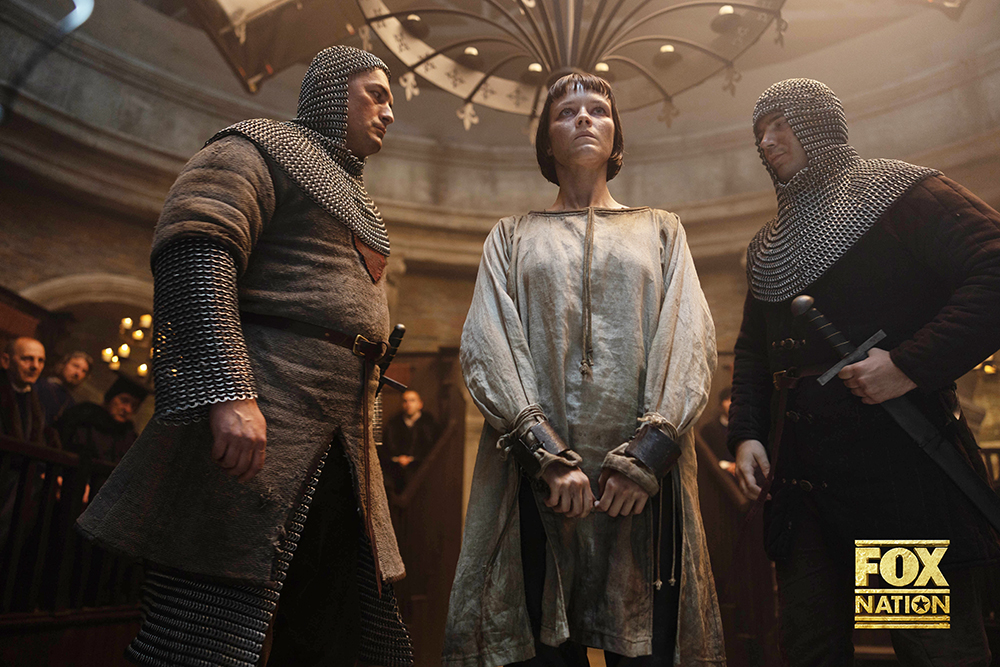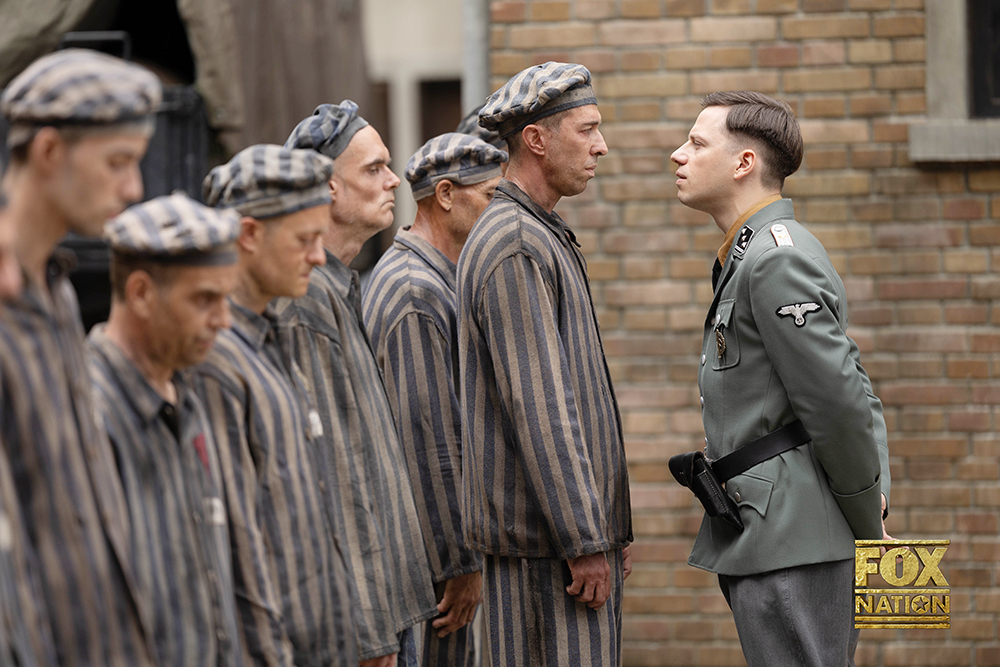
"Martin Scorsese Presents: The Saints" premiered Nov. 17 on the streaming service Fox Nation and concludes with an additional four episodes next April. Hosted and narrated by Scorsese, episodes follow the lives and deaths of Sts. Joan of Arc, John the Baptist, Sebastian and Maximilian Kolbe. (Angel Studios)
A common thread runs through the lives of four major Catholic figures profiled in the first part of "Martin Scorsese Presents: The Saints": They each embody a faith with consequences, a devotion that demands sacrifice and suffering. The stakes are life and death, but the reward is eternal.
The series, which premiered Nov. 17 on the streaming service Fox Nation and concludes with an additional four episodes next April, is hosted and narrated by Scorsese and follows the lives and deaths of Sts. Joan of Arc, John the Baptist, Sebastian and Maximilian Kolbe.
Condemned by a 15th century church court for heresy, 19-year-old Jeanne d'Arc was burned at the stake in Rouen, France. After denouncing Herod Antipas, the ruler of Galilee, John the Baptist was imprisoned and beheaded at the request of the tetrarch's stepdaughter. The Roman soldier Sebastian was shot through the heart with arrows for converting fellow soldiers under the blood-soaked rule of Diocletian. When Sebastian survived, he was later beaten to death and tossed into a sewer. And in an act of astounding courage and humility, the Polish-born Franciscan friar Maximilian Kolbe chose torture and execution at Auschwitz to save the life of a stranger selected for death.
Advertisement
Marked by straightforward, no-frills storytelling that boils down complex narratives to their essential points, "The Saints" is an artfully presented crash course on ordinary people of heroic virtue and uncompromised belief. There are no big swings, no revisionist narratives here (although a discussion of Kolbe's antisemitic rhetoric may prove controversial). It is a meat-and-potatoes production that emphasizes the key aspects of the saints' lives without winding detours or unnecessary details. Frankly, its brevity — each episode is about 45 minutes — is surprising considering the runtimes of Scorsese's last four films.
In focusing on some of the most popular saints in Catholic history who have also garnered broad attention in secular realms, the series does not limit itself to an exclusively Catholic audience. These individuals have been represented in major classics — Carl Theodor Dreyer's influential "The Passion of Joan of Arc," Roberto Rossellini's acclaimed "The Flowers of Saint Francis," Paul Humfress' and Derek Jarman's boldly queer "Sebastiane." (When questioned about the film's abundant nudity, Jarman reportedly replied, "We couldn't afford costumes.") Most Catholic and secular viewers alike will have at least some cursory knowledge of these figures.
The series' handsome lighting and high production values make it a cut above the compulsory classroom viewing that puts schoolchildren to sleep at 1 p.m., but "The Saints" maintains the flavor of "educational programming." And this may be intentional. Education has long been a calling for Scorsese, promoting "visual literacy" and the basics of film grammar, discussing the history of American film or narrating a four-hour overview of Italian cinema. His encyclopedic knowledge of film, gleefully shared with a good professor's verve, makes him an unusually engaging presenter.

Marked by straightforward, no-frills storytelling that boils down complex narratives to their essential points, "The Saints" is an artfully presented crash course on ordinary people of heroic virtue and uncompromised belief. (Angel Studios)
Yet Scorsese is not a doctor of the church nor a Scripture scholar, so he assembled a three-person team of expert commentators to discuss the saints' lives following each episode. These conversations — featuring Jesuit Fr. James Martin, Mary Karr and Paul Elie — may be the most fascinating part of the series, mostly because of the personalities involved. Scorsese's insights reveal many years devoted to Catholicism, reading Scripture and discussing "the big questions" with others. In another life Scorsese might have been a popular historian of religion.
Raised Catholic among street smart Italian-Americans in Manhattan, the former altar boy split his time between the movie theater and the church and set his sights on the priesthood. Even among his family members, the burgeoning director was unique in his devotion, fed on Christ, Graham Greene and a seat in the moviehouse. "I was the one who took the church seriously," recalled Scorsese in 1988 when discussing his enormously controversial adaptation of "The Last Temptation of Christ." "It may not be a stylish thing these days to say you're a believer, especially to say it so often in the papers, as I've been saying it. But I really think Jesus had the right idea."
"It may not be a stylish thing these days to say you're a believer, especially to say it so often in the papers, as I've been saying it. But I really think Jesus had the right idea."
— Martin Scorsese
When low marks in Catholic high school saw Scorsese denied admission to Fordham University, he pivoted toward a career in film, but the two passions remained inextricably intertwined. His childhood faith transformed into a mature and morally complex vision, marrying reverent worship in church with the incongruous violence outside its doors. In the late 1980s, following a long fixation on "questions of faith and penance and redemption," Scorsese made Christ his protagonist in "Last Temptation," an imaginative meditation on Christ's human struggles that prompted an international brouhaha — and a violent response in Paris.
Undeterred, Scorsese has only sharpened his focus on Catholic themes in recent years: 2016's "Silence" depicted 17th century Jesuit missionaries in Japan and an upcoming film will chronicle the life of Christ, a project he announced after meeting the pope last year. "The Saints" is a welcome addition to a commendable body of work largely defined by a restless quest for God.
"I tried for many years to find how Jesus is expressed in the world around me," he said at a Rome conference in 2023. "My search for Jesus continues."







